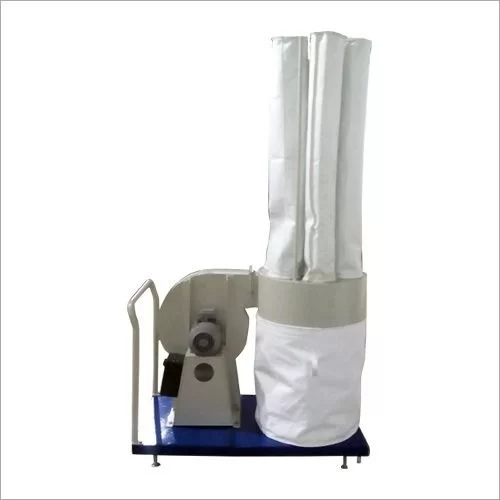Portable Dust Collectors Manufacturers
Home / Products / Dust Collector Manufacturers/ Portable Dust Collectors Manufacturers
Portable Dust Collectors Manufacturers
Portable dust collectors are compact and versatile devices used to capture and filter airborne dust, debris, and contaminants in various industrial, commercial, and DIY applications. Here’s a comprehensive overview covering their features, applications, benefits, and considerations:
Features of Portable Dust Collectors
- Compact Design: Portable dust collectors are typically compact and lightweight, making them easy to move around the workspace or job site.
- Versatility: They can be used in a wide range of applications, including woodworking, metalworking, construction, automotive, and general cleaning tasks.
- High-Efficiency Filtration: Portable dust collectors often feature high-efficiency filters, such as HEPA filters or cartridge filters, to effectively capture fine dust particles and contaminants.
- Powerful Suction: Despite their small size, portable dust collectors are equipped with powerful motors and fans to provide strong suction and airflow for effective dust collection.
- Variable Speed Control: Some models offer variable speed control options, allowing users to adjust the airflow and suction power based on the specific requirements of the task or material being processed.
- Durable Construction: They are built with sturdy materials and robust construction to withstand the rigors of industrial environments and frequent transportation.
- Portability: Portable dust collectors often feature ergonomic handles, wheels, or carrying straps for easy transport between work areas or job sites.
- Dust Collection Accessories: Many portable dust collectors come with a range of accessories, such as hoses, nozzles, brushes, and extension wands, to facilitate efficient dust collection in various applications.

Portable Dust Collectors Manufacturers
Applications of Portable Dust Collectors
- Woodworking: Portable dust collectors are commonly used in woodworking shops to capture sawdust, wood chips, and other airborne particles generated during cutting, sanding, routing, and shaping operations.
- Metalworking: They are used in metal fabrication shops to capture metal dust, shavings, and fumes produced during cutting, grinding, welding, and polishing processes.
- Construction: Portable dust collectors are utilized on construction sites for dust control during tasks such as concrete cutting, drilling, sanding, and drywall finishing.
- Automotive: They are used in automotive repair shops and garages to capture dust, dirt, and debris generated during sanding, grinding, and painting operations.
- General Cleaning: Portable dust collectors can be used for general cleaning tasks in workshops, warehouses, manufacturing facilities, and commercial spaces to maintain clean and safe working environments.
Benefits of Portable Dust Collectors
- Improved Air Quality: By capturing airborne dust and contaminants, portable dust collectors help improve indoor air quality and reduce the risk of respiratory problems and allergies among workers.
- Workplace Safety: They contribute to a safer work environment by reducing the risk of slips, trips, falls, and accidents caused by dust buildup on floors and surfaces.
- Equipment Protection: Portable dust collectors help prolong the life of machinery, tools, and equipment by preventing dust and debris from accumulating and causing damage or malfunctions.
- Regulatory Compliance: They assist businesses in complying with occupational health and safety regulations and environmental standards governing dust control and air quality.
- Versatility and Convenience: Portable dust collectors offer flexibility and convenience, allowing users to easily move them between different work areas or job sites as needed.
Considerations
- Filter Maintenance: Regular cleaning and replacement of filters are essential to ensure optimal performance and prevent clogging or reduced airflow.
- Dust Collection Capacity: Consider the size of the dust collector's collection bin or bag and its capacity to hold dust and debris, especially for high-volume applications.
- Noise Levels: Some portable dust collectors can be noisy during operation, so consider noise levels and the impact on workers' comfort and productivity.
- Power Source: Determine whether the dust collector operates on electricity, battery power, or compressed air, and ensure compatibility with available power sources.
- Accessories and Attachments: Check the availability of compatible accessories and attachments for specific tasks or applications, such as hose extensions, nozzle attachments, and dust bags.
- Cost and Budget: Evaluate the upfront cost, ongoing maintenance expenses, and overall value proposition of the portable dust collector based on your budget and requirements.
